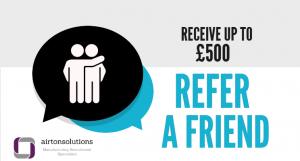
Interviews can take many forms; some are structured, some are formal and others feel like a relaxed chat. The feel and structure is often dependent upon the character of the interviewer and also the culture and size of the organisation.
Regardless of the company and the role in question, it’s worthwhile preparing for the following 10 questions as a number of them will come up in each of the interviews you attend.

1. Tell me about yourself
(The interviewer wants to hear you speak)
This is one of the most often asked questions in interviews and is usually asked as an ice breaker and to test your ability to think on your feet. Your answer should be concise, lively, and upbeat and should include who you are, your career to date, your qualifications, your skills and your career aspirations. Make sure you keep your answer to a maximum of 5 minutes and no more, don’t take this as an opportunity to give your life story! Limit is to work related items unless otherwise instructed.
2.What are your main achievements to date?
(The interviewer wants to know if you are an achiever)
This is almost always asked and for this reason it is advisable that you have a few examples to hand. Choose a recent achievement and answer in a three stage process. The goal, how you achieved the goal and what the outcomes were. If discussing a work achievement, try and quantify the achievement in terms of cost savings made, efficiencies improved, scrap reduction made etc.
3. Give me an example of a challenging situation you have faced and how you overcame it?
(The interviewer wants to know if your definition of difficult and theirs are the same and what process you use to analyse and overcome problems.)
Discuss a work based situation and describe the challenges. Talk about how you analysed the situation and how you came to a decision on how you should act. Talk about what you did and what the outcomes were. It is also worth mentioning points of learning you took from this situation and how you could use the knowledge gained in the future.
4. What is your greatest strength?
(The interviewer wants a direct answer to explain what you are good at and how this will add value to the organisation.)
This question will be most certainly be asked and therefore you must be prepared for it. It is a good idea to have three or four strengths in mind, which could include things such as technical competency, leadership skills, attention to detail, resilience or ability to learn. Expand on each of your answers and give examples of where you have demonstrated these strengths and importantly what benefits they have brought. Other thing such as problem solving skills, ability to work under pressure and positive attitude all go down well.
5. What are your main weaknesses?
(The interviewer wants to know how you perceive yourself and how self-aware you are)
This is another classic question and one you must be ready for. Everyone has a weakness, so don’t suggest you haven’t any! When choosing a weakness to highlight, consider using professional weaknesses such as lack of experience in a given area, at the same time highlighting your desire to close these gaps and your enthusiasm to learn. You may also want to discuss a personal weakness such as being impatient, but highlight what you are doing about it right now and how you have improved in this area by your continued focus. Understand that this is an opportunity to turn a weakness into strength. i.e. “I am very focussed on my attention to detail, everything has to be perfect”
6. What motivates you?
These things are very individual and will be specific to each person. Good examples would be a challenge, achievement, job satisfaction, progression, autonomy. The answer to this one is definitely not money!
7. What do you know about this company?
(The interviewer wants to gauge how much research you have done, thus demonstrating your level of interest)
Demonstrate an understanding of the company and its product range. Attending an interview without checking the company’s website beforehand could spell disaster! Talk about the research you done and highlight positives that you have found out about the company. Being more prepared than other candidates will make you stand out from the crowd.
8. What is your reason for leaving your current employer?
(The interviewer wants to understand your motives for looking for a new position.)
Stay positive regardless of the situation. Speak about what you are looking for in your next career move and why you aren’t receiving these things at your present company. For example, how you are unable to achieve the level of responsibility you are looking for, how you might be looking for a change of environment/culture. Do not use this as an opportunity to put your present employer down! Speaking badly about a previous employer never goes down well. If there are issues/ challenges at your present company then remain professional and take the emotion out of the answer.
9. Why do you want to work for this company?
In this instance sincerity is important. Give two or three key reasons such as how the job would allow you to move towards achieving your career goals, the positive culture that exists within the business, the content of the role etc.
10. Do you have any questions for me?
This one will always be asked so make sure you have a few questions in mind. If it is a first stage interview and this question is asked, it is best not to bring up things such as holidays, salary, working hours etc first of all. Try to ask “bigger picture” questions such as “What is the companies approach to training and development? What are the longer term business goals?”
Good luck with the interview and remember you cannot be too prepared!
Search our latest jobs here

